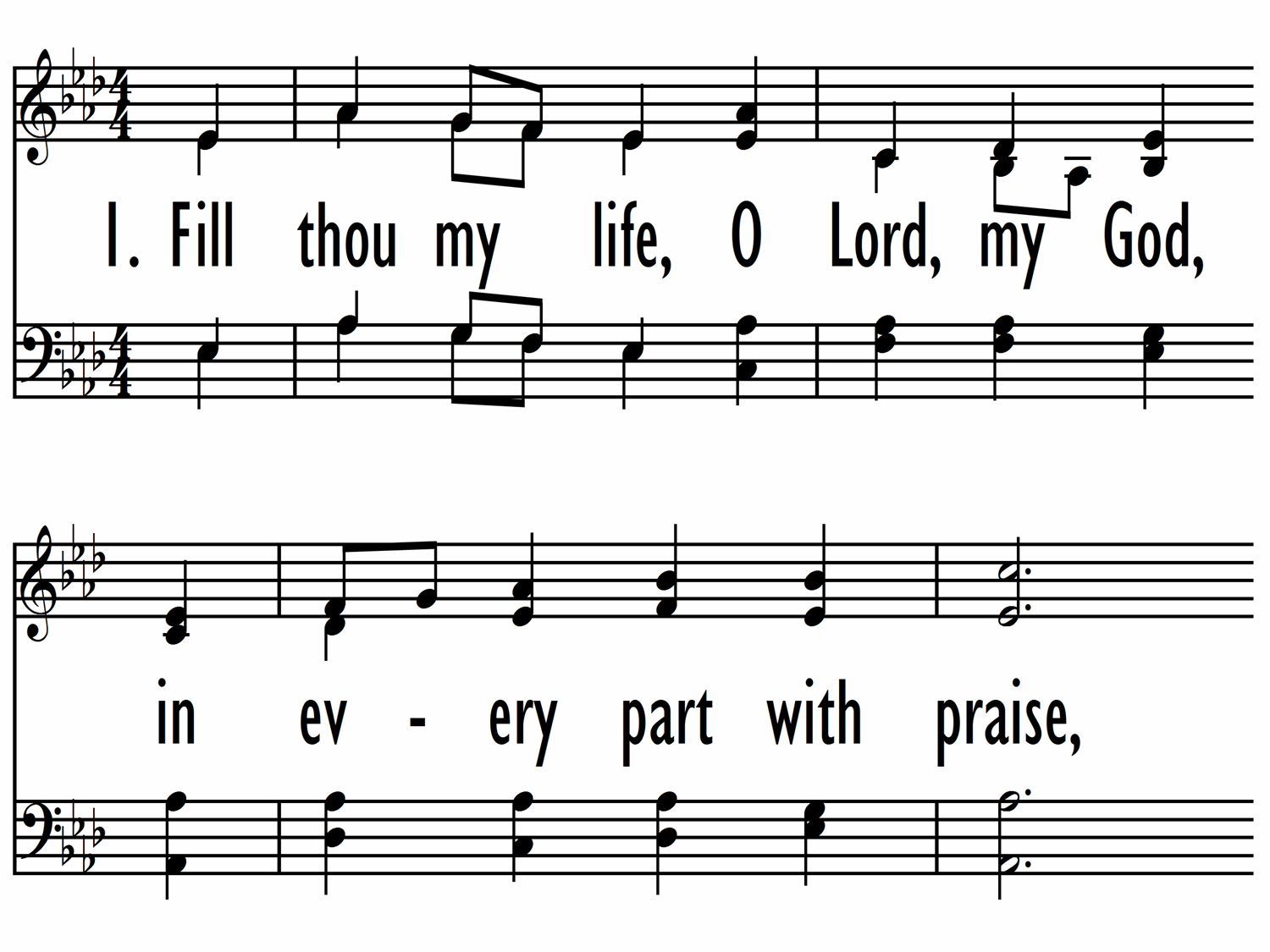- |
User Links
Fill Thou My Life, O Lord, My God
Hymn Information
- First Line
- Fill thou my life, O Lord, my God
- Author
- Horatius Bonar (1863, alt.)
- Tune Name
- ELLACOMBE
- Tune Source
- <i>Gesangbuch der Herzogl</i>, Hofkapelle, Würtemberg, 1784
- Topic
- Discipleship · God's: Presence · Grateful Living · Holy Spirit · Jesus Christ: Presence
Copyright Information
- Text Copyright
- Public Domain
- Tune Copyright
- Public Domain
- Reprint/Projection Information
- Words and Music: The Words and Music are in the Public Domain; you do not need permission to project or reprint the Words and Music.
Full Text
Scripture References
Further Reflections on Scripture References
The text's theme is the consecration of all life as a doxology to God–the equivalent in hymn form of the neo-Calvinist concept that all of life is religion. Echoing an emphasis of the Old Testament prophets (see Ps. 50 or Isa. 1), this text affirms that "lip service" or an orthodox heart is not enough; we must live our Christianity in every aspect of our lives each day. That sanctity of life includes the intimate setting of family life and, by extension, the entire family of God, the church (st. 2). Such a holy lifestyle is possible only in communion with God, in "fellowship with thee."
Psalter Hymnal Handbook
Confessions and Statements of Faith References
Further Reflections on Confessions and Statements of Faith References
The comprehensiveness of this prayer (“my whole being,” stanza 1) arises from a heart that knows the full power of the grace of God that has restored us, “so that with our whole lives we may show that we are thankful to God for his benefits...” (Heidelberg Catechism, Lord’s Day 32, Question and Answer 86).
Heidelberg Catechism, Lord’s Day 47, Question and Answer 122 professes that believers can aim to “direct all our living—what we think, say, and do—so that your name will never be blasphemed because of us but always honored and praised.”
Fill Thou My Life, O Lord, My God
Call to Worship
Fill Thou My Life, O Lord, My God
Tune Information
- Name
- ELLACOMBE
- Key
- A♭ Major
- Meter
- 8.6.8.6 D


 My Starred Hymns
My Starred Hymns






